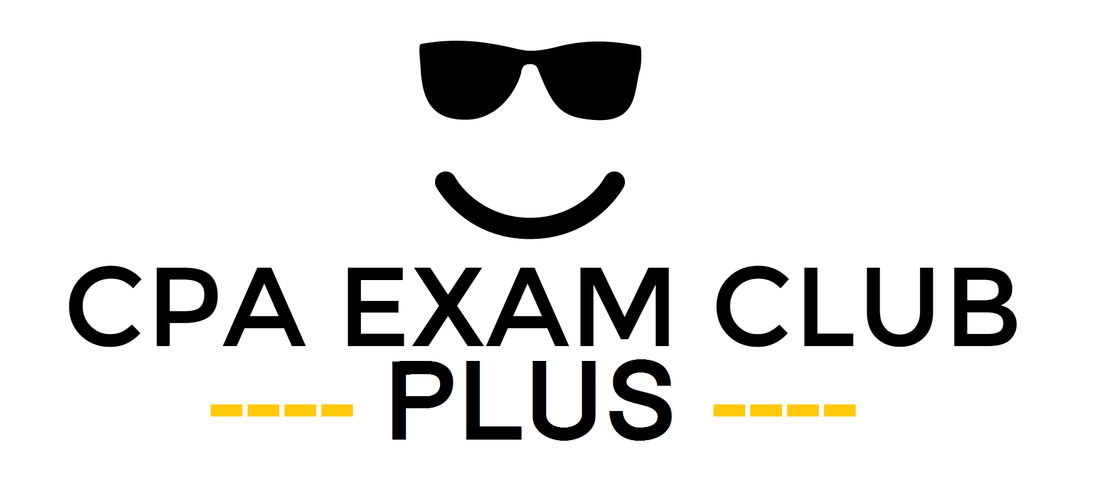FAR Study Tip #6: Simulate Exam Day
Make sure to understand the concepts rather than memorize. If you get the general logic in each topic then the JEs fall into place. I used CPAExcel and kept taking MCQs in study mode so I would learn what I missed. I also did two practice exams where...
I simulated what exam day would be like to take some pressure off. Also, I took my breaks during the exam. I broke out my time table so I could take 5 min breaks between each section and had a granola bar for a snack before the TBS. I passed with a 79, not a super high score but enough to pass. Hopefully this helps! - Victoria I.
FAR Study Tip #7: Layer with Repetition
Repetition of the topics. The more you go over each section, you tend to pick up more info each time. Work the sims and do practice exams. - Joshua M.
FAR Study Tip #8: Previous Chapters
I reviewed 20 questions a day from the previous chapter. In other words while I was working on 2 I would do 20 questions that I missed from 1 and so on. The questions I missed I marked in the software and printed them out and put them in a binder. In the end I had 10 binders one for each chapter. In addition I used Becker flashcards. I added to them with the passkeys and call outs for the differences between gaap and ifrs from the book. I reviewed a chapter of flash cards each night before I went to bed. The SIMMS I only attempted once because they took too much time. - Todd D.
FAR Study Tip #9: What Worked & Didn't Work
Here are a few things that worked for me and didn't work for me.
Tip 1: My first time around, I signed up for all 4 tests on one NTS. 6 months wasn't really enough time for me to get through all the material. When you are signing up for tests, only sign up if you know you have enough time to sufficiently get through the material. My second time around, I only signed up for 2 exams on one NTS. In the long run, paying the extra signup fee and passing is a lot better than signing up for all 4 and increasing the chance that you will fail each one (it ends up being just as/more expensive if you fail just one!).
Tip 2: I found that instead of setting goals of how much material to get through per day (i.e. spending 3 days per chapter), I found it a lot easier to just keep track of my progress by how much time I spent studying instead of how much material I am getting through. I am a slow reader so my first pass through each test, I found i was pushing ahead trying to keep to my schedule even when I didn't have a solid understanding of the topic. What helped me most was i just hit start on a timer and compared the hours i spent studying each week to the previous week.
Tip 3: my process for understating the info in each chapter was to first read the chapter without taking notes, take the related MCQ's, then go back through the chapter summarizing it in my notes. I also hand-wrote all of my notes.
Tip 4: Take as many MCQ's as you possibly can, and don't gloss over the sims that require a lot of reading and computational work. Take time to get the correct answers and get an understanding of the ones you got wrong. Even for the questions you get right, make sure you understand why the other options were wrong.
Tip 5: Don't burn yourself out, 6 hour cram sessions are a quick way to loose motivation and stress you out. studying 1 hour a day for 6 days a week is better than doing 1 day of 6 hours in a week. - Spencer G.
Tip 1: My first time around, I signed up for all 4 tests on one NTS. 6 months wasn't really enough time for me to get through all the material. When you are signing up for tests, only sign up if you know you have enough time to sufficiently get through the material. My second time around, I only signed up for 2 exams on one NTS. In the long run, paying the extra signup fee and passing is a lot better than signing up for all 4 and increasing the chance that you will fail each one (it ends up being just as/more expensive if you fail just one!).
Tip 2: I found that instead of setting goals of how much material to get through per day (i.e. spending 3 days per chapter), I found it a lot easier to just keep track of my progress by how much time I spent studying instead of how much material I am getting through. I am a slow reader so my first pass through each test, I found i was pushing ahead trying to keep to my schedule even when I didn't have a solid understanding of the topic. What helped me most was i just hit start on a timer and compared the hours i spent studying each week to the previous week.
Tip 3: my process for understating the info in each chapter was to first read the chapter without taking notes, take the related MCQ's, then go back through the chapter summarizing it in my notes. I also hand-wrote all of my notes.
Tip 4: Take as many MCQ's as you possibly can, and don't gloss over the sims that require a lot of reading and computational work. Take time to get the correct answers and get an understanding of the ones you got wrong. Even for the questions you get right, make sure you understand why the other options were wrong.
Tip 5: Don't burn yourself out, 6 hour cram sessions are a quick way to loose motivation and stress you out. studying 1 hour a day for 6 days a week is better than doing 1 day of 6 hours in a week. - Spencer G.
FAR Study Tip #10: Don't Rush FAR Grind
I don't know about REG, but compared to AUD the FAR chapters took me about twice as long to get through. On average, I spent around 25 - 30 hours per chapter. My point is that with FAR being 10 chapters (Becker), plan accordingly. It's a solid 12 week study period (with two review weeks). Don't rush it, but you have to push. It's a grind. - Blake N.






